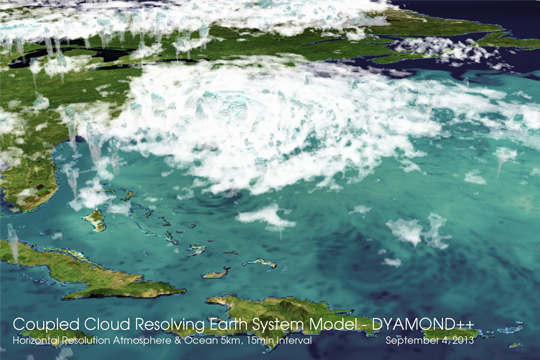26.11.2020
Details
Date: Friday, 27 November 2020
Time: 18:00 - 19:00 CET
Conference: International FAIR Convergence Symposium 2020
Title: Standardising Metadata of Atmospheric Model Results: The ATMODAT Standard
Authors: Anette Ganske, Amandine Kaiser, Daniel Heydebreck, Angelina Kraft
Link: https://conference.codata.org/FAIRconvergence2020/sessions/180/poster/74/
Abstract
Atmospheric model data form the basis to investigate and understand processes and changes of the Earth's atmosphere, ranging from e.g. small-scale studies of the circulation around single buildings to large-scale changes of the Earth’s global climate. Such data should be made available for evaluation and reuse by storing them in a repository together with detailed metadata. These datasets are easier to find, if the corresponding metadata is machine-readable and uses a standardised vocabulary. While standardisation of file structure and metadata (e.g. CF-Conventions) is well established for some subdomains of the Earth system modelling community (e.g. for climate models in CMIP), other subdomains are still lacking standardisation. For example, there exists no common vocabulary to describe data from obstacle-resolving atmospheric models for urban-scale studies.
The AtMoDat (Atmospheric Model Data) project, which started in 2019, has been funded to increase the number of publications of matured atmospheric model data. We are using the experience of the World Data Centre for Climate (WDCC) with the curation of climate model results and are transferring their methods to other atmospheric model data. Controlled vocabularies for two atmospheric research fields - the urban-scale climate and global/regional cloud models - are developed together with the community. They will be added to the standard name table of the CF-conventions. First results of our investigations have been summarized in the ATMODAT standard.
A prerequisite of this standard is the publication of data with a DataCite DOI. It further requires the use of free licences and the storage of data in netCDF files. Additionally, exact specifications for the DOI metadata, the landing page and the headers of the netCDF files are included. The ATMODAT standard is easy to implement and provides checklists for data curators and data producers. A dataset that complies with this standard will follow the FAIR principles and its metadata will be of high quality. If this compliance has been verified by the respective repository, the dataset can be labelled with the Earth System Data Branding (EASYDAB). This branding makes it easy for users to verify that the data are properly curated and the metadata has been quality assured.
